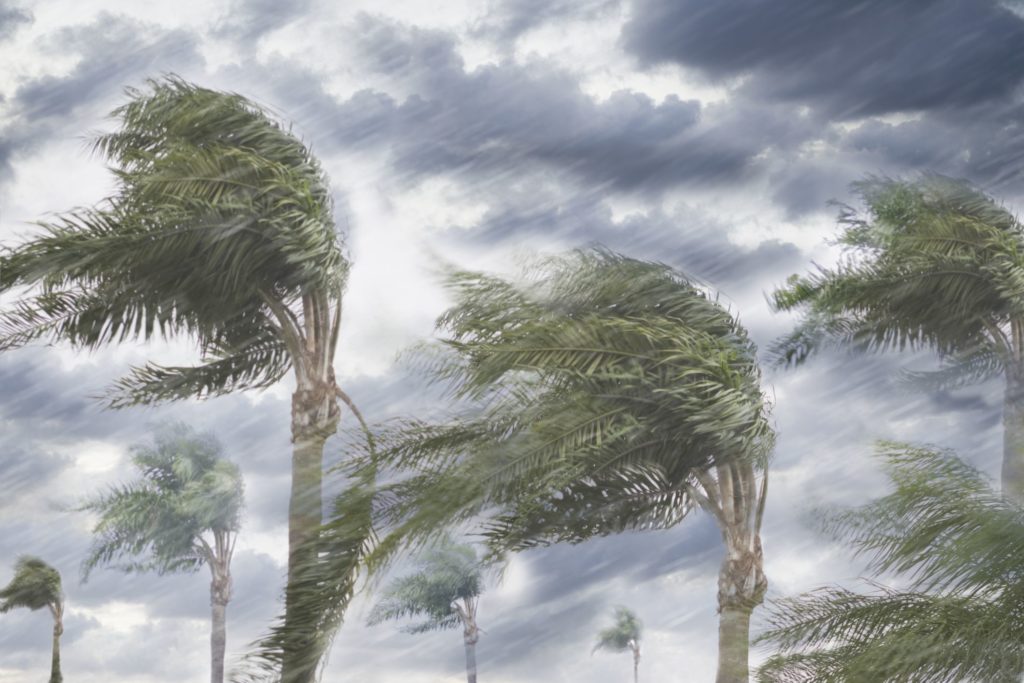As July has now turned to August an already busy hurricane season has become much more of a reality to many as Isaias made landfall as a category 1 hurricane Monday night at Ocean Isle Beach, North Carolina. Even as it slowed to a tropical storm its effects were felt all over the Northeast with flooding, wind damage, tornado threats and power outages. For many businesses in 2020 the focus has mainly been on COVID-19 and civil unrest, but as we get into the thick of hurricane season, this is a good time to review your hurricane and tropical storm procedures, as your response may be impacted by the current pandemic.
Protecting your business
According to the American Red Cross, almost half of all small businesses affected by a major disaster, such as a tornado, flood, earthquake or hurricane, do not reopen their doors because they were unprepared for the disaster. Therefore, it is necessary for business owners and managers to consider the fact that a natural disaster is possible. Ask yourself these questions: How could I continue to conduct business if the city (or even just the streets near my building) are closed off? How could I serve my customers’ needs if my facility needed to close for several months? Could my business survive if it was closed for several weeks or months?
Even if a hurricane does not put your company out of business, you may not be able to make contact with your customers or obtain important deliveries. To combat these risks, you must take the necessary steps before a disaster strikes to ensure business continuation.
Hurricane Preparation Suggestions
Consider incorporating the following hurricane preparation suggestions into your business to avoid unnecessary upsets in the event that disaster strikes:
- Check local flood maps by visiting www.esri.com/services/disaster-response/floods/latest-news-map.html Also, have your building inspected by a licensed professional to ensure that the roof and other connections comply with the wind loading requirements for your area.
- Consider installing impact-resistant film on your windows.
- Gather a list of vendors and telephone numbers of individuals or entities that are critical to your daily operations. If you heavily rely on one or two vendors, consider adding a backup vendor outside of your area.
- Prepare a list of companies that can assist you in recovery efforts, such as removing debris, moving and computer services.
- Provide employees with a chain of command and list of responsibilities in the event that a disaster strikes.
- Prepare a list of your employees and their contact information. Also find out where they may vacate to, if you are required to evacuate the city.
- Arrange for communication with your clients and customers, in the event of a disaster, to keep them informed.
- Constantly diversify your customer base, products and sales locations. This will prevent a major loss, if a majority of your customer base is also affected by the hurricane.
- Designate a remote phone number on your voicemail system for which you can record messages to employees in the event of an emergency.
- Arrange for programmable call forwarding of your business lines with the phone company. Then you can call and reprogram your phones from a remote location, if needed.
- Install emergency backup lights that turn on when the power goes out.
- Back up your data on a frequent basis and keep this information off-site.
Emergency Supplies
If employees may be confined for several hours, or even days, consider stocking the following items at your place of business:
- Flashlight and extra batteries.
- Battery-powered radio.
- Ready-to-eat canned foods, fruits and vegetables. Also, energy foods, such as granola bars. Select foods that do not require refrigeration, cooking or preparation.
- Water stored in plastic containers.
- Urge employees to keep a three-day supply of their medications on-hand as well as pain relievers and stomach remedies.
- Urge employees to bring in a blanket.
- Paper plates, cups and utensils.
- Manual can opener.
- Urge employees to keep an extra pair of reading glasses at work.
- First-aid supplies (adhesive bandages, sterile dressing, roller gauze bandages, triangular bandages, gauze pads, germicidal hand wipes and alcohol-based sanitizer, non-latex gloves, adhesive tape, cold packs, scissors, tweezers, CPR face shield, and extra cloth face masks).
Reducing Damage
- Bolt tall bookcases and displays to the wall studs.
- Secure breakable items in a stand using hook-and-loop fasteners.
- Place large objects on low shelving.
- Install latches on drawers to prevent them from flying open.
- Secure pictures and mirrors to the wall with closed screw eyes and wire.
- Secure your water heater to the wall studs with plumber’s tape or strap iron.
- Install flexible connectors to appliances using natural gas and automatic fire sprinklers.
When Storms are Imminent
Once you get word that a storm is coming, you must take immediate action. First, secure your facility by covering windows with shutters or plywood. Then, cover and move equipment to a more secure area. Also, consider the following actions:
- Back up your files and move this information off-site.
- Make arrangements to use alternative means of communication, especially if you cannot shut down your systems completely.
- Check your emergency supplies and stock up on any necessary items.
- Help your employees get to their families safely. If it is not safe to leave the facility, establish a meeting point outside of the evacuation area for employees once you can leave.
Insurance Considerations
- In addition to the various precautions that you should take in-house, you should also have adequate insurance coverage to protect against losses. Contact TBM to discuss your needs and review the coverages that are right for you.
- Beyond your typical policies, consider Flood Insurance and Business Interruption coverage policies. Also, have your business appraised every five years. In addition, conduct an inventory of your supplies and equipment, including photographs of these items and descriptions. Then leave this information in an off-site location.
- Everyone at your facility should know what to do and how to prepare for a hurricane.
Impacts of COVID-19 on your Business and Employees
The virus has been forcing people into working situations that they weren’t accustomed to before the pandemic, primarily with so many employees working from home. As a benefit, many businesses are already prepared should they need to close their doors for an extended period of time. Because of the COVID-19 crisis, industries have also started adapting to new technology and new ways of doing business that fit right into the hurricane season, such as moving more focus to online experiences. Even with this, business owners and employees need to be aware of certain situations that could be impacted by COVID-19 and prepare accordingly:
- Understand that your planning may be different this year because of the need to protect yourself and others from COVID-19.
- Give yourself more time than usual to prepare your emergency food, water, and medicine supplies.
- Pay attention to local guidance about updated plans for evacuations and shelters, including potential shelters for your pets.
- If you need to evacuate, prepare a “go kit” with personal items you cannot do without during an emergency. Include items that can help protect you and others from COVID-19, such as hand sanitizer, or bar or liquid soap if not available, and two cloth face coverings for each person.
- When you check on neighbors and friends, be sure to follow social distancing recommendations (staying at least 6 feet, about 2 arms’ length, from others) and other CDC recommendations to protect yourself and others.
- If you need to go to a disaster shelter, follow CDC recommendations for staying safe and healthy in a public disaster shelter during the COVID-19 pandemic.
As with any major event, having a plan in place before hand can help protect your business and employees, and keep your business running before and after a disaster happens.



